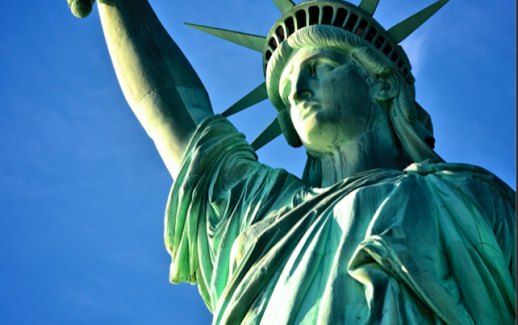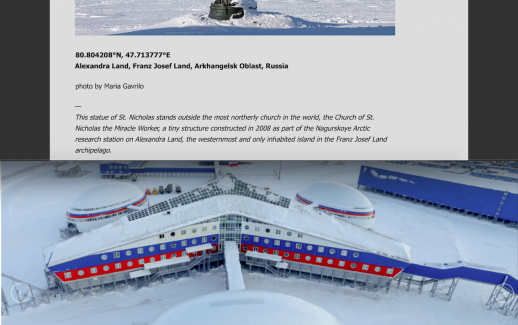Writing on the Kremlin Wall: Putin’s government arrests 4,500 Russians and Counting

With 4,500 arrests and counting during Navalny freedom protests, Putin’s authoritarianism is showing its deterministic premise that individuals’ free will should not clash with the will of the state, no matter the letter and spirit of the laws. Alexei Navalny was poisoned, recovered in Germany, and was swiftly arrested and jailed on returning to Russia. The irony of the Beatles-McCartney lyric ‘Back in the USSR, you don’t know how lucky you are, boy,’ comes to mind in reflection on the treatment of Navalny and other Russians seeking lawful redress and individual freedoms.
The authorities in Moscow and St. Petersburg now likely have the arrestees’ photos with facial recognition points recorded. History echoes in what Daniel Yergin and Thane Gustafson once forecasted as early as 1993 as the “Two Headed Eagle” declining into the “Russian Bear,” with specific visualizations of the details as to how it happened somewhat off, but the result, accurate.1
Russia did not enter a time warp. Its hardliner spy state found a time machine in the internet and powerful technologies with which to expand their Twentieth Century dreams. They rode that magic carpet back toward imperial glory much as the villain of Aladdin, Jaffar did upon seizing the wishing Lamp from Aladdin. But imperial glory centered in central personalities becomes cultic, unhealthy, and imposes humility on peoples that has the look of real humility, but is externally forced, not internally generated.
This imposes an extreme pendulum effect on societies whereby imposed-humility becomes unbearable, people revolt, and society finds it hard to settle and thrive as it might. It isn’t that the West did not follow the same model during Feudal times, nor that it has not recently felt the specter of it haunting its own halls of power.
Whereas the hope of liberty growing out of the individual will maximize the chance of multi-dimensional supports and solutions out of the ingenuity of myriad individual visions of freedom informing many projects, and not descending from the brooding expectations of a unitary leader.
I could be wrong, but I think in Russia there will be a renaissance of Russian constitutional republican democracy engineered by the Russians themselves after the failure of the hardliner spy state and some of its criminal enforcers, many of whom don’t even like themselves when they look in the mirror.
Others, forever tribalist, may never change. And yet change will sweep them along anyway where the advantages of tribal control pale compared with the freedoms of diverse teams collaborating within and competing with other diverse teams in a polity organized to support this. Putin in 2015 praised American “creativity when it comes to tackling problems, their openness; openness and open-mindedness, because it allows them to unleash the inner-potential of their people, and thanks to that, America has attained such amazing results in developing their country,” during his interview on CBS’s 60 Minutes:
Putin’s admission was honest, and I believe he had a sincere understanding of how hardliner-dominated societies almost always create brittleness and bitterness in their leaders with mass co-dependence on the leadership that makes the people of a nation unprepared to handle collective freedom, awaiting a new autocrat of some kind. Gorbachev certainly understood this, realizing that Russians in the trenches of the Soviet military industrial system were dependent on hearing from higher-up in the centralized hierarchy before they felt cleared to act. They also too often gave disingenuous positive reports to higher-ups fearing punishment or censure. The citizen-autocrat relationship in realtime is fraught with smothering and provocative elements that can make the people passive and the dictator bitter. I believe this is observable in the behavior of Stalin at the fawning, somewhat co-dependent crowd in one of his speeches, below:
For the initial two and one-half minutes of the speech, Stalin seems to bask in the adulation. Then toward the end, he shows increasing agitation, impatience, and anger at the mass obsequiousness that his own leadership created. Bitter, frustrated dictators are among the most dangerous. Russia can make dictatorships and autocracies work, but it repeats itself as forced, volatile, risky, and keeps Russia from the progress it might otherwise achieve with greater collective yet individually creative involvement.
The idea is, don’t put authoritarian personalities in charge, but always have hardliner advisors and professionals in the right positions (not pole position, as when Yeltsin appointed Putin First Prime Minister) whose perspectives are not always wrong, nor always right. Keep them involved in a diverse academy in which they make friends, exchange views, and think with Russians of different perspectives. Respect them and take them seriously, as they know threats to the Republic, because they know how to impose them. Help them see and understand how they themselves can threaten health and even the existence of the Republic if they rule. Russians can do this as individuals and together with no advice needed or manipulations from the West.
This essay is just a witness of what I personally believe Russians are capable of as a free thinking American, not as an American thinker.
1Yergin, Daniel. “Chapters 10-11.” Russia 2010 – and What It Means for the World, by Daniel Yergin and Thane Gustafson. New York, NY, Random House, 1993.

